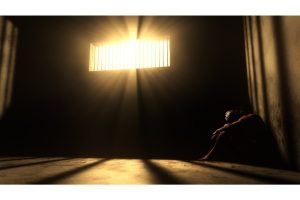Solitary confinement is used widely and often indiscriminately in the America prison system. Although placing a prisoner for hours on their own may make life easier for prison staff, this method is often detrimental to inmates. The ACLU has warned solitary confinement fuels mental health problems in prisons.
The American Civil Liberties Union highlighted the increased use of solitary confinement in the prison system in a recent campaign.
The ACLU claims long-term isolation of inmates does nothing to rehabilitate prisoners. It exacerbates mental illness in those who suffer from disorders and even causes it in prisoners who were healthy when they entered solitary confinement. The ACLU also points out solitary confinement is costly.

The ACLU launched its campaign to stop prisoners being held alone in 2016. It follows considerable academic research on the negative effects of solitary confinement on inmates.
Writing in Psychology Today, psychiatrist Terry Kupers described how he toured the Los Angeles County Men’s Central Jail and testified as a psychiatric expert in a lawsuit the ACLU brought on behalf of prisoners claiming the jail lacked adequate mental healthcare facilities.
By the late 1980s, solitary confinement was used routinely in so-called “supermax” prisons.
Kupers recounted the story of one inmate called Tanya, who highlighted the detrimental effect solitary confinement can have on an inmate’s mental health.
Tanya (not her real name) was confined to supermax isolation after violating prison rules. She spent two years alone in a cell before being returned to the general prison population.
Kupers reported the treatment had an extreme effect on the inmate, causing anxiety attacks and paranoia. She associated solitary confinement with being locked in the closet as a child and experienced many “reliving” experiences. Her mother routinely beat her before locking her up. She believed she was reliving the trauma on two occasions. Tanya experienced flashbacks that impacted her mental health.
Kupers concluded only a massive reduction of the prison population and the upgrading of community mental health and rehabilitation programming could help deal with mental illness problems in the criminal justice system.
An article in The Sentencing Project noted Dr. Stuart Grassian of Harvard University discovered a third of people in solitary confinement are “actively psychotic and/or acutely suicidal.”
He said people held in solitary confinement pose the highest suicide risk. Eventually being locked up alone place burdens on the families of inmates and communities as they seek to adjust to life on the outside and may leave them more likely to re-offend.
The article noted 80,000 to 100,000 adults are held in solitary confinement in U.S. prisons on any given day. It is not unusual for these prisoners to remain in their cells for 23 hours a day for weeks, months, or even years.
At the Garcia Law Firm, we are well aware of how badly mentally ill inmates fare in the Arizona prison system. We follow many robust defense strategies for mentally ill people and fight for them to avoid jail time. Please call us today for a consultation at (602) 340-1999.


